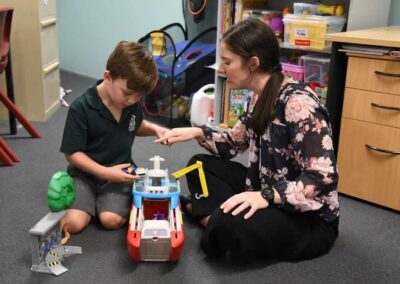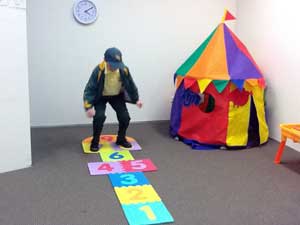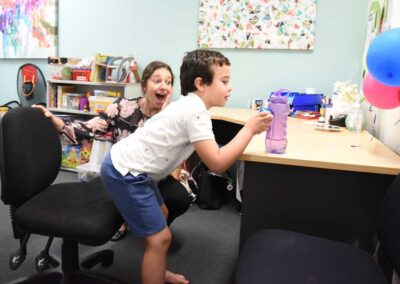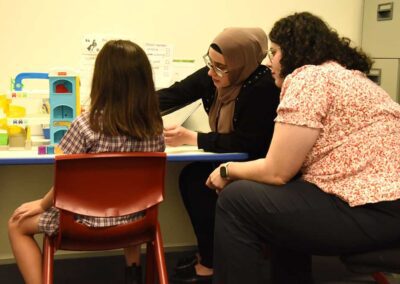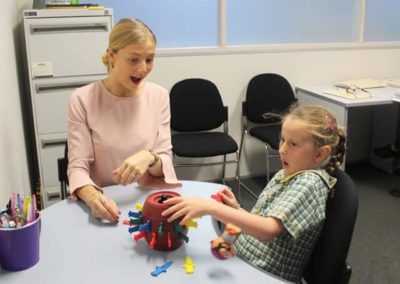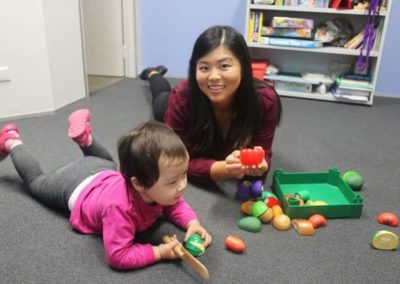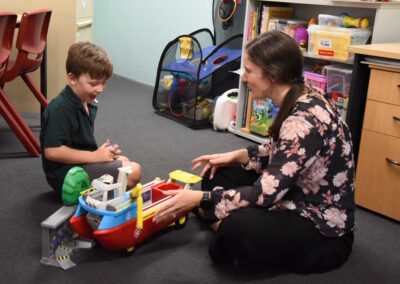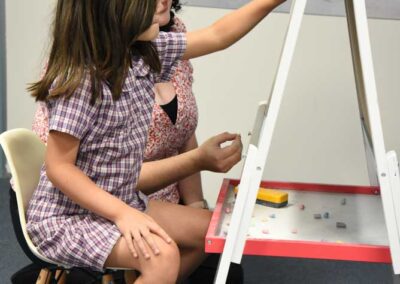In our busy world parents and children have a lot on their plate. It’s a growing list that can often feel endless! School drop offs, extracurricular activities, music lessons, sports, pick-ups and drop-offs, school homework and now speech pathology homework? But completing homework doesn’t have to be another task to tick off the checklist. Yes it’s very important to help your child build their communication skills, but let me explain how and why it can also be fun!
Why does my Speech Pathologist Set Home Practice?
Learning a new skill often takes time and practice. The more we practice, the easier and more automatic a new skill becomes. Think back to when you first learned how to ride a bike. When you first started learning, you had to think about the individual components of cycling; checking both ways, slowing pedaling, learning how to glide and balance, practicing hopping on and off, getting comfortable with braking. It was hard and took a lot of concentration and persistence! But overtime, especially with the support of our parents, riding becomes easier, more fun and we don’t seem to even remember at what stage it became automatic. Soon we wanted to remove our support pedals and race!
Making changes to children’s communication skills similarly takes time. It requires a lot of practice to learn a new or different way of talking. Speech is one of the most complex and important motor activities. It requires us to develop our motor memory, just like learning to ride a bike. However, unlike learning to ride, speech practice needs to be daily, rather than once a week or even a few times a week. This is why in order for your child to make progress in therapy, it is essential to practice at home.
Ok so how do I make homework fun?

Five Tips to Help with Homework Practice:
Your Speech Pathologist will work closely with you to find the best ways of incorporating homework into your daily life and routine! Here are some ideas and helpful tips:
Tip 1: Make therapy homework part of your daily routine!
Practice your speech words by playing I-spy in the car on the way to school (e.g. I spy a cat, car,key…). If you are working on early concepts head out to the zoo or park and talk about all the animals you see; the big cockatoo, the tall giraffe, the fast dog, the noisy, cheeky monkeys! Talk about your routine using ‘first, next, last’ and ‘before, after’ words (e.g. First we will put on our shoes, then go to the car. Before you eat, wash your hands!).
Tip 2: Get moving (homework doesn’t always have to be seated at the table)
Practice prepositions at the park; slide down the slide, climb up the stairs, swing forwards and backwards. Play a game of hide and seek using your speech therapy cards. Make it a competition to see who can find the most. Practice following instructions by playing a game of Simon Says (e.g. sit on the floor and put your hands on your head).
Tip 3: Short but more frequent practice is better
Research tells us that when it comes to establishing new motor speech patterns, 5-10 minutes of practice a day is more important than long sessions. These short bursts of practice help build your child’s muscle memory of the sound and contributes to carrying over skills outside the therapy room. So don’t think about homework in the traditional sense, but have lots of quick 5 minute activities embedded throughout your week.
Tip 4: Use your child’s interests (make it individual!)
Not one size fits all! Even as adults we are more likely to follow through with an activity that we are curious about or interested in. The same applies for our little ones. As therapists we want to collaborate with you to determine what goals you are wanting to achieve, and how we can achieve that success. Maybe your primary aged child loves playing Pokemon or Sonic – let’s consider how these games can be incorporated into their home practice. Or maybe your toddler loves animal play. Can they work on speech while playing with their pet, or pet toys? Maybe your teenage daughter loves pop musicians and bands. Can language goals and reading activities be about their interests? Speak to your speech pathologist to discuss how to make home practice centered around your child interests and motivations.
Tip 5: Have Fun!
Remember there are no set rules about what you can and can’t do with homework practice. However consistency is key! Have fun with your child and praise them for their hard work. Incorporate your child’s interest and practice into daily routines. Let us know what games have worked for your homework practice.
I hope that when your speech therapist hands out their next homework you are full of ideas. If you’re still finding home practice hard – that’s ok, talk to your therapist and let them know. I encourage parents to be consistent and think outside the box to motivate their children to become excited about speech and language.
Speak, Learn and Grow provide speech therapy services for children of all ages. Your child can further develop their social communication and play skills with our friendly therapists. To find out more, check out our website or call our friendly office at (02) 8522 7024 to book your appointment.


